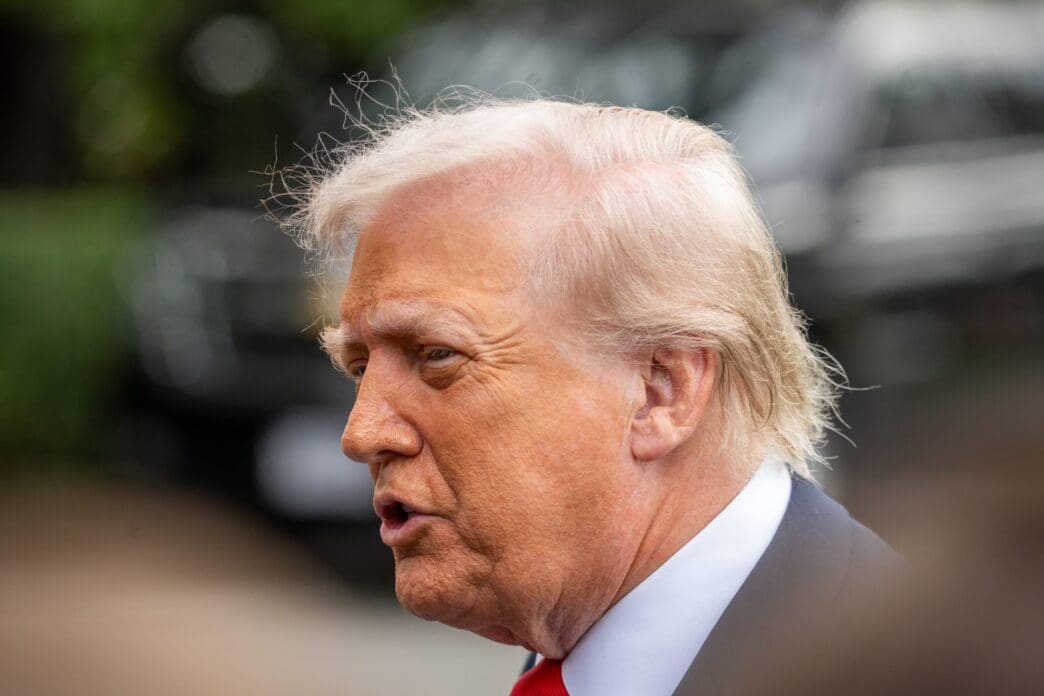Executive Summary
The Story So Far
Why This Matters
Who Thinks What?
President Donald Trump delivered a speech to generals and admirals at Marine Corps Base Quantico in Virginia on Tuesday, reportedly attempting to align military leaders with his political agenda and domestic policy objectives. The event, which included remarks from Defense Secretary Pete Hegseth, has been characterized by critics as a significant blurring of the lines between the military and politics, raising concerns about the potential for a constitutionally corrosive militarization of the homeland.
Background on Military Deployment and Loyalty Concerns
The Quantico gathering follows a federal judge’s recent rebuke of the Trump administration’s use of the military in Los Angeles. A footnote in the judge’s decision revealed that after National Guard Maj. Gen. Scott Sherman privately objected to a planned show of force in MacArthur Park, a top Department of Homeland Security official, Gregory Bovino, questioned Sherman’s loyalty to the country.
This incident underscored growing tensions regarding the deployment of military forces on U.S. soil. Critics, including former military officials from Trump’s first term, have expressed fears that such actions could lead to the militarization of domestic affairs. Public sentiment appears to align with these concerns, as a New York Times-Siena College poll released Tuesday indicated that more registered voters feared Trump using troops to intimidate political opponents than feared uncontrolled crime without the National Guard.
Quantico Speeches Emphasize Political Alignment
The meeting at Quantico, described as a “highly unusual summoning” by Defense Secretary Hegseth, reportedly served as an occasion for President Trump to garner support for his political program. During a lengthy speech, Trump incorporated elements typically found in campaign rallies, discussing his achievements, hopes for a Nobel Peace Prize, and repeatedly attacking Democrats.
Most notably, Trump appeared to solicit the generals and admirals for his domestic crackdown initiatives. He and Hegseth reportedly sought to pit military leaders against Democrats, academia, “left-wing radicals,” and the media. Trump suggested the military would be crucial in combating an “enemy from within,” stating, “We’re under invasion from within… No different than a foreign enemy, but more difficult in many ways because they don’t wear uniforms.”
The President also proposed using U.S. cities as “training grounds” for the military, specifically naming San Francisco, Chicago, New York, and Los Angeles as “very unsafe places” that would be “straightened out one-by-one.” He described this as a “war from within” that would involve “some of the people in this room.”
Defense Secretary Hegseth’s Remarks
Defense Secretary Hegseth’s address preceding Trump’s also contained significant political messaging. While focusing on the importance of “war-fighters” and stricter fitness standards, Hegseth repeatedly criticized the perceived “woke”-ness within the military and targeted transgender individuals. He also aimed to create a divide between military leaders and what he characterized as left-leaning institutions, stating that “the Ivy League faculty lounges will never understand us” and “the media will mischaracterize us.”
Concerns Over Politicization
Both Trump and Hegseth’s remarks were seen as an attempt to draw the military into partisan politics. Trump explicitly told the generals and admirals that Democrats “did not treat you with respect,” implying a political alliance with his administration. This approach has deepened concerns among those who fear the politicization of the military and its potential long-term implications for the institution’s apolitical nature.
Despite public reservations about deploying the National Guard on U.S. streets, President Trump has indicated his intention to press forward with these plans. At the start of his Quantico speech, Trump lightheartedly remarked, “If you don’t like what I’m saying, you can leave the room. Of course, there goes your rank. There goes your future,” underscoring the pressure on military leaders to align with the administration’s directives.








